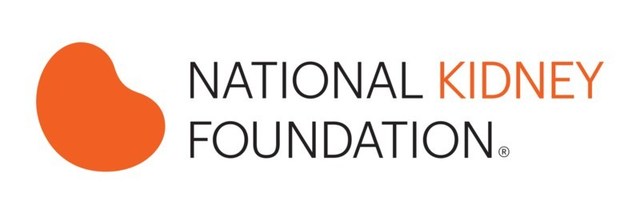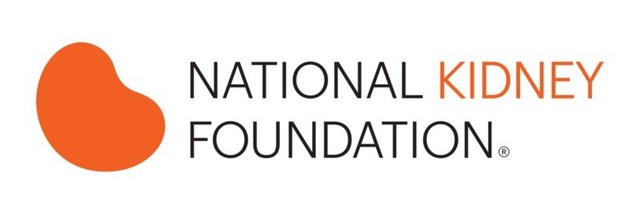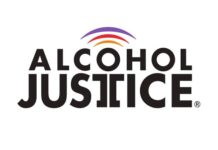NEW YORK, Sept. 15, 2021 /PRNewswire-HISPANIC PR WIRE/ — In observance of National Hispanic Heritage Month, the National Kidney Foundation’s (NKF) national public awareness campaign, “Are You the 33%?” encourages all adults in the U.S. to know the five risk factors for kidney disease, also known as chronic kidney disease (CKD) – heart disease, high blood pressure, diabetes, obesity, and family history of kidney disease. NKF urges everyone to find out if they’re the 1 in 3 at risk for developing kidney disease (approximately 80 million people) by taking a one-minute quiz at MinuteForYourKidneys.org.

“Kidney disease affects an estimated 37 million adults, but 90% are unaware they have it because it’s a silent killer with no symptoms during the early stages of the disease,” said Kevin Longino, NKF Chief Executive Officer and a kidney transplant patient. “Most people are also unaware of the link between the five risk factors and kidney disease, so the first step to preventing kidney disease is understanding your risk and speaking with your doctor about getting tested. Having kidney disease also puts you at greater risk of developing life-threatening complications from COVID-19, so learning your level of kidney health is extremely important.”
Actor, activist, producer, and entrepreneur Wilmer Valderrama has led the awareness efforts as a national spokesperson with a thought-provoking social media campaign and broadcast PSAs available in both English and Spanish focusing on the 1 in 3 American adults at risk for kidney disease. For the last two years, Valderrama also participated in NKF’s Kidney Patient Summits (held virtually due to the pandemic) that brings hundreds of kidney advocates together each year to meet with their congressional delegations and advocate for action on legislation that affects the lives of those with kidney disease. Patient advocates consistently emphasize the importance of preventing and treating kidney disease given its impact on people of color.
“Given the significant burden of this illness, it’s troubling to me that more adults in the U.S. are not aware of kidney disease,” said Wilmer Valderrama. “That’s why I’m proud to lend my voice to promote awareness and early detection of kidney disease, especially in traditionally underserved communities.”
During NKF events Valderrama shared his personal connection to these diseases revealing that several of his close family members have both diabetes and high blood pressure, two of the most common risk factors for developing kidney disease. Having high blood sugar from diabetes can cause damage inside your kidneys, so it’s important to control your glucose levels. Having uncontrolled high blood pressure over time can cause arteries around the kidneys to narrow, weaken or harden. These damaged arteries are not able to deliver enough blood to the kidney tissue, which can cause kidney disease.
“Kidney disease is a public health crisis that could affect everyone at some point in their lives,” said Dr. Sylvia E. Rosas, NKF President-elect and a nephrologist and epidemiologist at the Joslin Diabetes Center in Boston Ma. “Everyone needs to know if they’re the 33% of U.S. adults at risk for developing kidney disease, particularly if they are dealing with any of the five risk factors and the unique challenges present for each of those diseases. Take the simple, one-minute quiz at MinuteForYourKidneys.org to help promote kidney health in your family.”
Heart disease can directly affect your chances of getting kidney disease because the heart and kidneys work together to keep you healthy and alive. The heart pumps blood filled with oxygen through all parts of your body, including the kidneys. Not maintaining a healthy bodyweight can also put you at greater risk for diabetes, kidney disease, heart disease, and a host of other problems. And lastly, a family history of kidney disease can raise your chances of getting the disease.
“Approximately 785,000 Americans have kidney failure and need dialysis or a kidney transplant to survive,” added Dr. Rosas. “We must urgently transform understanding risk into taking actions to help millions of Americans who have any of the five risk factors. Patients should also ask their doctors about two simple tests to diagnose kidney disease: a specific urine test, called uACR, and a calculated blood test, called eGFR.”
People of Black or African American, Hispanic or Latino, American Indian or Alaska Native, Asian American, or Native Hawaiian or other Pacific Islander are all at increased risk for developing kidney disease. Blacks or African Americans are 13 percent of the U.S. population but represent 35 percent of those with kidney failure. Hispanics or Latinos are 1.3 times as likely as non-Hispanics/Latinos to develop kidney failure. To help address these disparities, NKF is focusing on addressing the social determinants of health which contribute to the disproportionate risk of kidney disease in communities of color and eliminating racial and ethnic disparities in critical areas such as access to transplantation and home dialysis.
The “Are You the 33%?” campaign urges everyone with a risk factor to learn more by taking a simple, one-minute online quiz at MinuteForYourKidneys.org. The campaign microsite is available in both English and Spanish at MinuteForYourKidneys.org.
Join the conversation on social media by using the hashtag #MinuteForYourKidneys.
Kidney Disease Facts
In the United States, 37 million adults are estimated to have chronic kidney disease (CKD)—and approximately 90 percent don’t know they have it. 1 in 3 adults in the U.S. is at risk for chronic kidney disease. Risk factors for kidney disease include: diabetes, high blood pressure, heart disease, obesity, and family history. People who are Black or African American, Hispanic or Latino, American Indian or Alaska Native, Asian American, or Native Hawaiian or Other Pacific Islander are at increased risk for developing the disease. Black or African American people are almost 4 times more likely than Whites to have kidney failure. Hispanic or Latino people are 1.3 times more likely than non-Hispanic or non-Latino people to have kidney failure.
Approximately 785,000 Americans have irreversible kidney failure and need dialysis or a kidney transplant to survive. More than 550,000 of these patients receive dialysis to replace kidney function and 230,000 live with a transplant. Nearly 100,000 Americans are on the waitlist for a kidney transplant right now. Depending on where a patient lives, the average wait time for a kidney transplant can be upwards of three to seven years.
About National Kidney Foundation
The National Kidney Foundation (NKF) is the largest, most comprehensive, and longstanding patient-centric organization dedicated to the awareness, prevention, and treatment of kidney disease in the U.S. For more information about NKF, visit www.kidney.org.
Facebook.com
Twitter: @NKF
www.kidney.org
Logo – https://mma.prnewswire.com/media/1120890/NKF_Logo2_OB_Logo.jpg
SOURCE National Kidney Foundation







